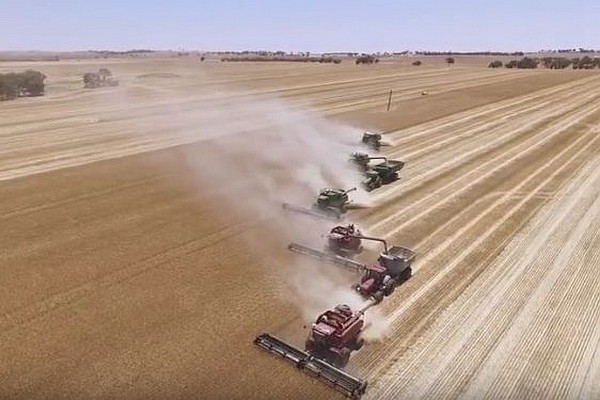Published on the 22/02/2019 | Written by Heather Wright

A$50m fund on lookout for innovative tech startups…
Australian grain growers, and agritech developers, are on the fast track to benefit from agritech following the creation of an A$50 million fund to boost innovative technology in the grains industry.
The Grains Research and Development Corporation Australia (GRDC), which is the fund’s cornerstone investor, and Australia’s largest and most active early stage VC firm, Artesian, have each contributed A$25 million to create the GrainInnovate fund.
The fund is one of the largest institutional capital pools in Australia and is setting its sights on areas including genetic tools and technologies, crop and environmental sensing, grain storage logistics, renewable technologies, task automation, crop protection technologies and crop management logistics.
“R&D is the key to growing our agriculture industry to A$100 billion in farm production by 2030.”
John Woods, GRDC chairman, says the initiative will provide grain growers with access to cutting edge ideas and technologies ‘whether developed in a shed in the back paddock in Parkes, or discovered in a Germany-based international life science company, or an agri-tech company in the Silicon valley’.
“Australian grain growers are some of the most innovative in the world,” Woods, who is himself a grain grower in Goondiwindi, says. “We have seen an increase in the gross value of grain production from an average of A$6 billion to approximately A$15 billion in the past 15 years – most of which has come from grain growers adopting new and novel technologies.
However, he says ‘more of the same’ will not be good enough to lift the industry. “We need to be transformational in our thinking and transformational in our approach,” he says.
“To stay competitive we need to seek new innovations, new technologies and bright ideas from Australia and around the world and get it into grower hands as quickly as possible so we maintain our competitive advantage.”
The fund was applauded by Minister for Agriculture David Littleproud, who says the fund will help turn grain-growing ‘into a high-tech science’.
“R&D is the key to growing our agriculture industry to A$100 billion in farm production by 2030,” Littleproud says.
“It is an important and innovative step forward in co-funding between GRDC and the private sector, to encourage R&D collaboration.”
The fund will be open to both local and international startups who can contribute to the profitability of Australian grain growers, and can be leveraged by attracting additional co-investment.
GrainInnovate will invest between A$25,000 and AU$100,000 at seed stage and A$100,000 to A$500,000 at angel stage.
Artesian says it will then follow on Series A funding through to exit, with proceeds pumped back into the fund.
The GRDC is responsible for planning, investing in and overseeing RD&E for the grains industry in Australia, with its funding coming from a grower levy and government contributions.
Littleproud says Government and industry invest more than A$800 million annually in rural research and development corporations. More than A$300 million was matching government funding.
“This fund will invest in leading edge developments in genetics, cultivation and storage systems. Some of this technology will detect changes in growing conditions and give farmers the information needed to keep their grain healthy,” Littleproud says.
“GrainInnovate will also invest in renewables, crop protection technologies and water and nutrient use efficiency.”
GrainInnovate says a number of technology trends are driving change in the industry, including large data sets requiring ongoing management and curation to support analysis, the need for improved connectivity given greater use of data in decision making, and the impact of labour shortages which will drive automation of farm practices.
Improvements in AI, modelling and forecasting will also drive data analysis, while existing supply chains and incumbent business models will be disrupted by digital innovations such as AI, machine learning, blockchain and the internet of things.



























